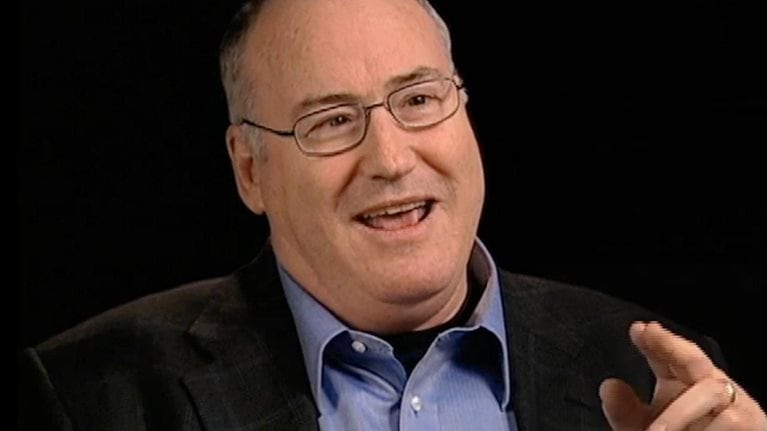There are a lot of jerks in the workplace. I should know. Over the last decade, since I began digging into the effects of incivility, thousands of people have asked me for advice about dealing with bullying bosses, board members, clients, and colleagues. I have, for example, been sent (and saved) some 8,000 emails that detail the range of such disrespect and intimidation, and the resulting distress and destruction. And I’ve tracked pertinent peer-reviewed research, which is growing like crazy. For example, a Google Scholar search on abusive supervision from 2008 to 2016 returns 5,670 scholarly articles and books; rudeness generates 16,300 citations—and bullying a whopping 139,000. My interactions with the targets of such abuse, plus that growing pile of research, prompted me to return to the subject in a new book, The Asshole Survival Guide: How to Deal with People Who Treat You Like Dirt (Houghton Mifflin Harcourt, September 2017).
Stay current on your favorite topics
The reasons for the persistence and spread of bad behavior are legion: a global economy, with its demands for rapid decisions and around-the-clock interactions, overburdens leaders, employees, suppliers, and customers. In this world, where email, texting, and social media replace face-to-face conversation and the compassion triggered by eye contact, too many jerks feel unfettered by empathy, guilt, and old-fashioned civility. Meantime, some rising executives believe that treating people badly is a path to personal success—a conclusion bolstered by journalists and a few academics, who celebrate demeaning and disrespectful leaders. One CEO I interviewed was worried he wasn’t enough like the late Steve Jobs and that his career and start-up would suffer because he was calm and treated people with dignity.
Bullying bosses impose costs on people and organizations that are manifold—and often hidden. Hundreds of experiments show that encounters with rude, insulting, and demeaning people undermine others’ performance, including their decision-making skills, productivity, creativity, and willingness to work harder and help coworkers. As a senior leader, your job is to build an organization where jerks don’t thrive. In my writings a decade ago, and in the pages of McKinsey Quarterly, I put forth some principles on how companies can build a civilized workplace—adopting a “no-asshole rule,” as I called it—and how they need to enforce the standards, weave them into hiring and firing policies, and apply them to customers and clients, with the goal of creating a culture of small decencies.
For leaders, there’s a more personal dimension that should be in play, as well: the recognition that we’re all capable, for a variety of reasons (exhibit), of being part of the problem. The risks of turning insensitive and unkind to others increase as you become more senior. Much research shows that being and feeling powerful provokes people to focus more on their own needs and wants, and to become oblivious to others’ needs and feelings. And as we all know, sh*t rolls downhill. Take the pompous and pushy board member labeled “the idea man” by one exasperated Silicon Valley executive team. This director constantly proposed new ideas on everything from business strategies to HR practices to tweaks and massive changes in products. In the CEO’s view, most of the ideas were terrible, yet the director placed constant demands on managers, creating unnecessary distractions and raising stress levels across the executive suite. This CEO devoted big chunks of time to deflecting and arguing with the board bully to protect his team members. That bolstered their well-being and contributed to stronger company performance.

The board member was part of the problem, but that CEO wasn’t. He avoided falling prey to power poisoning, took it upon himself to shield his people from the director’s antics, and treated them with respect. The earlier leaders can develop this perspective on power, the easier it is to sustain throughout their careers. A prestigious surgeon wrote me about how when he was a surgical resident at an elite medical school some 20 years earlier, he and his colleagues were subject to and witnessed episodes of unbelievable mental cruelty on a daily basis by the attending physicians (who served as their superiors and mentors). They developed a little ritual that would help them avoid becoming leaders who behaved like their bad role models. Every Friday, they would meet for a few beers at a local bar after an arduous workweek. The highlight of the happy hour was nominating and electing the “attending a-hole of the week,” or AAOTW. All aggrieved individuals would recount their episode with an attending physician who would merit their nomination as the jerk of the week. The group voted, and the “winner’s” name was entered into a leather-bound journal book they kept, along with a synopsis of the incident.
The surgeon explained that the residents learned how destructive bullying behavior was and vowed not to imitate such pathological behavior. Now, some 20 years later, those former residents all hold prestigious positions; many are program chairs and department chairs—and, he reported, “I am proud to say that everybody who was a part of that Friday group runs their training programs with an unwritten ‘no-asshole’ rule.”
The upshot is that being a respectful, civilized leader is a personal philosophy that can shape how you view life, the actions you take, and how you judge yourself—and provide a framework for leading your team and organization. If you want to be part of the solution rather than part of the problem, it helps to keep a few lessons in mind about how to live this philosophy despite the hubbub and hassles of executive life and in light of our all-too-human flaws and biases.
Take a look in the mirror—are you part of the problem?
We human beings have a penchant for denial and delusion. We’re often clueless about our flaws, and when we do admit shortcomings, we underestimate their severity and negative impact. Nobel Prize winner Daniel Kahneman believes the curse of overconfidence is the most destructive of human biases. We are prone to developing distorted and overly positive self-images—and to deny, disregard, or never notice negative information about ourselves. For most of us, coming to grips with when we act like jerks, or encourage others to do so, requires overcoming some mighty potent predilections.
Consider that more than 50 percent of Americans say they have experienced or witnessed persistent bullying, but less than 1 percent admit to doing it. Those numbers don’t add up; a lot of jerks aren’t confessing (or even aware of) their sins. As Columbia University psychologist Heidi Grant Halvorson documents, the key to self-awareness isn’t found inside our heads; it’s in discovering how others see us—even when it hurts.1
The clueless (though well-meaning) CEO of one company I know was horrified when two female executive vice presidents pulled him aside and admonished him after a meeting. The women, who kept careful tallies, informed the CEO that he had interrupted each of them at least six times, but never interrupted the four male executive vice presidents. Stunned and embarrassed, the CEO begged for forgiveness and asked them to keep tracking his interruptions, vowing to halt his sexist ways. He didn’t want to feel that self-loathing again.
Things get worse when leaders are unwilling to hear the truth: you can reduce your risk of treating others badly by seeking out and listening to trusted truth tellers, which can prompt reflection on your past behavior that helps identify circumstances that bring out the worst in you. My department chair at Stanford played the truth teller for me after I sent a blistering email to a student who was irritating fellow students and made irrelevant comments in class. My chair told me no faculty member should treat a student that way and demanded that I apologize. That conversation stung. But I knew he was right. I apologized and have become more disciplined about having face-to-face conversations with disruptive students.
The bigger the gap between how we see ourselves and how others see us, the worse our relationships tend to get, so there is a big payoff for coming to grips with how others perceive us. To get there, however, you need people who know you and who won’t sugarcoat the truth, and to seek and accept candid feedback from them. When they give you bad news, thank them and don’t lash out at them or wallow in self-pity.

Building the civilized workplace
A tough former Silicon Valley CEO told me a story about how his team made him the butt of a joke, and how it ultimately reduced tension on the team, brought it closer together, and taught him that he needed to tune down his hostility. For some reason, many of the insults he aimed at senior executives involved unfavorable comparisons to vegetables, such as “you are dumber than a head of lettuce” or “the average zucchini could figure this out.” His team cooked up some payback. One day, when the CEO arrived at the conference room for a meeting, instead of seeing his team members in their usual places at the table, each was replaced by a head of lettuce, complete with eyes, smiles, and, in some cases, hats and sunglasses. There was even a head of lettuce at the CEO’s place. The pushback worked. The CEO admitted he had often been too hard on his team during the company’s tough period of change and growth. The wild ride continued, but the team members tolerated the leader’s sometimes rude humor because they had the confidence to throw it back. The give-and-take brought them closer and made the CEO mindful of how his words and deeds could bruise people’s feelings.
A five-point action plan
Dysfunctional behavior often happens in the moment, against our better nature. Few of us want to be jerks, and most leaders care about the people and institutions in their charge. Here are five tips for CEOs and other top executives who strive to treat others with dignity and respect.
1. Beware of contagion. If you are around a-holes, you are likely to catch the disease because bad behavior is so contagious. Trevor Foulk and his colleagues have demonstrated how rudeness spreads like a common cold. Research subjects who encountered even one rude partner in simulated negotiations were prone to become carriers and to be rude during their next negotiation, even with a different partner.2
If you are leading a Lord of the Flies company, where cruelty, backstabbing, and selfishness abound, you are likely to start behaving like that, too. Think about whether that is the kind of person you want to be, the effects on you and those you care about, and possible remedies (including making a clean getaway). A project executive wrote me about how at his last company, “jerks begot jerks,” and senior management’s most favored underlings were as snide and arrogant as their bosses and routinely lashed out at junior employees and used them as sacrificial lambs to advance their personal agendas. The executive confessed, “It brought out the a-hole in me, and I was frequently irate, overly forceful, and overbearing because it seemed to be the only way to get things done.” The bad dreams, stress, and frustration drove this executive to quit and move to a small company with a strict no-jerks policy.
2. Watch how you use your influence. Wielding power over others increases the risk you’ll start treating others like dirt. Regardless of how kindly, cooperatively, and empathetically you’ve acted in the past, power can cause you to have less empathy, to exploit others more, to focus on your own needs, to be rude and disrespectful, and to act like the rules don’t apply to you.3
One antidote is practicing humility, giving credit to less powerful people, deferring to those who are less prestigious or wealthy than you, and doing them favors. Tim Brown, CEO of the global design firm IDEO, understands the principle. A few years back, when I visited the IDEO offices in Palo Alto and went to the floor where senior leaders worked, I found Brown sitting in the front, where a receptionist would be in most workplaces. There was no gatekeeper to keep colleagues or random visitors like me from walking up and interrupting him. Brown had a private office the last time I had visited, so I asked why he wasn’t in it. He explained he had abandoned the office to be in a spot that made him “the most public person on the floor.” Most IDEO senior leaders had moved out of offices, too. He added that when executives were out in the open, there were more casual exchanges and fewer barriers. Brown believed his job was “to get to know the people and how they work, and I can’t learn much sitting in a private office.” The lesson isn’t that every executive should move out of his or her office. Rather, it’s that finding ways to reduce the power distance between you and others decreases your employees’ stress, increases their contributions, and changes how you see yourself in ways that can prevent you from acting like a selfish bully.
Remember, too, that just because you are the boss doesn’t mean you have more power (or insight) than your reports. A veteran CEO I know does everything possible to hire and encourage “blunt no-BS” employees who confront him with strong opinions and don’t hesitate to critique his conclusions. The CEO emphasizes that so long as employees aren’t selfish or crazy, he doesn’t mind when such conversations get heated. Problems are much easier to tackle when facts and associated feelings are put on the table—as long as there is mutual respect. In her years as CEO of Xerox, Anne Mulcahy embraced a similar strategy, cultivating internal critics and “building a team that could counter some of my own weaknesses.” In an interview with the Quarterly, Mulcahy described how she learned to groom internal critics who pushed back and had the courage to give her blunt feedback.
3. Understand the risks of overload . . . and technology addiction. Being in a rush, having too much to do, and having too many distractions can turn even the most civilized person into a jerk—a CEO’s workload makes him or her especially susceptible to this malady. According to research by Christine Porath, half of those who say they have engaged in uncivilized behavior at work also say they are overloaded and have no time to be nice. When I talk to leaders about overload, meetings are among the primary culprits. Senior executives at Dropbox attacked the problem with an “Armeetingeddon” initiative: IT staff went into each employee’s online calendar and deleted virtually all upcoming meetings except those with customers. This “meeting subtraction” forced employees to think about the overload they inflicted on themselves and others. As they manually reentered each upcoming meeting, they were pressed to ask themselves if it could be scheduled less often, be shorter, involve fewer people, or was unnecessary.
Multitasking, checking emails, and using smartphones probably contribute to overload even more than unnecessary meetings. These modern necessities (and addictions) can cause us to be curt, treat others as if they were invisible, and devote too little attention to our colleagues, friends, and family. When it comes to overcoming such electronic temptations, leaders need to exercise self-control and nudge others to do likewise. When Chris Fry was senior vice president of engineering at Twitter in 2014, he found that senior team members looking at smartphones during meetings were undermining communication and civility. Fry implemented a new policy: team members were required to give phones to his executive assistant for safekeeping during meetings.
4. When you behave like a jerk, apologize . . . but do it right. A well-crafted apology can help reduce your target’s pain, repair your relationships, improve your reputation, and provoke soul-searching that enables you to learn from your transgressions. A good and effective apology acknowledges fault, accepts full responsibility for what happened, tries to explain why it happened, and commits you to personal change. One caveat: if you find yourself apologizing again and again, it’s time to stop. It’s probably a sign that you are using apologies as a substitute for learning and toning down your act. And apologizing and making amends to others isn’t something you ought to delegate.
A worst practice is when leaders rely on handlers to manage the fallout from their demeaning and disrespectful actions. Peter Frost describes a toxic senior executive who brought the same chief lieutenant with him to a series of roles over 15 years.4 In most meetings, this boss attacked people with angry tirades. The handler would then try to smooth things over, going from office to office to explain this jerk’s “real” opinions and tell people he wasn’t as angry and spiteful as he seemed. This handler protected the boss—but not other people or the company—from suffering the consequences of his mean-spirited ways.
5. Do a little time travel. This mind trick is among my favorites for bringing out the best, and stifling the worst, in leaders. It entails deciding what to do today based on how you want to feel about yourself when you look back from the future. As one of my correspondents noted, “When they are on their deathbed, no one ever says, ‘I wish I had been meaner.’” One recovering workplace bully wrote me that the process is similar to that faced by a recovering alcoholic. He is ashamed of his past behavior, but when he looks back on his life, he wants to feel proud of how he treated others since his recovery commenced. Framing his life from the future helps him—one day at a time—treat those around him in more civilized ways.
I had a revealing conversation with Pixar’s founder and president, Ed Catmull, about how a bully can change for the better. We talked about the widespread belief that Steve Jobs succeeded, in part, because he was overbearing, temperamental, and insensitive—the myth that enticed the young CEO described earlier to wonder whether he ought to behave the same way. Catmull worked closely with Steve Jobs for 25 years. He agreed that Jobs had a well-earned reputation “for poor behavior early in his career.” Catmull emphasized, however, that many writers, biographers, and filmmakers miss a crucial part of the story: that Jobs changed for the better after he was “kicked out” of Apple and suffered a slew of setbacks at his high-end computer company, NeXT, and at Pixar in the early years.
As Catmull puts it: “Jobs wandered in the wilderness for a decade. In the course of working through and understanding these failures, and then succeeding at Pixar, Jobs changed. He became more empathetic, a better listener, a better leader, a better partner.” Catmull says that the more thoughtful and caring Steve Jobs was the one who created the incredibly successful Apple. Jobs remained a notoriously tough negotiator, a challenging person to argue with, and a perfectionist. But Catmull observes that Jobs’s greatest successes came only after he abandoned the notorious mistreatment of others that plagued his early years.


